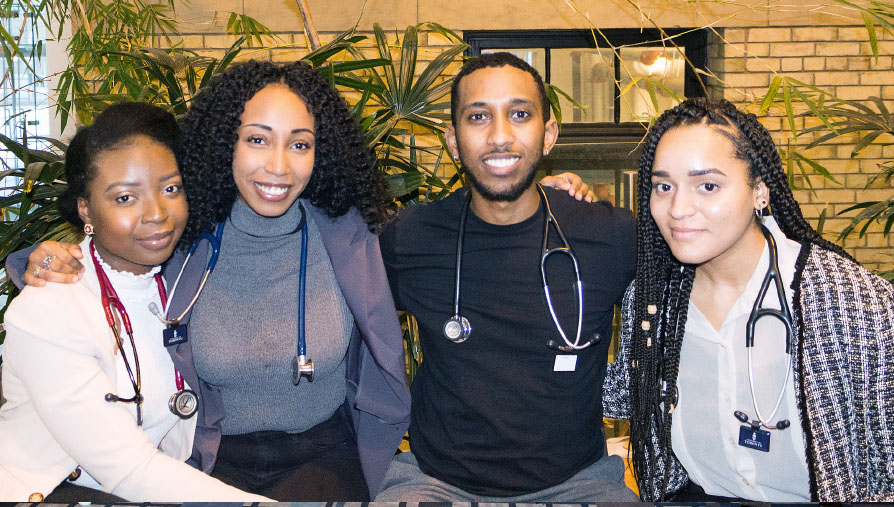This article originally appeared in the July/August 2020 issue of the Ontario Medical Review magazine.
Who shoulders the weight of progress?
by Maclite Tesfaye, BSc and Osman Mahamud, MSc, BSc
As we mourn the losses of George Floyd, Breonna Taylor, Ahmaud Arbery, D’Andre Campbell, and Regis Korchinski-Paquet, we are cruelly reminded of a lived reality where Black lives are disproportionately policed, subjected to inequitable health care—and through countless other mechanisms, systematically oppressed.
These tragic deaths have highlighted the anti-Black violence perpetuated by current policing systems and anti-Black racism sowed deeply into our institutions. While there has been an increase in both interest and receptiveness with regards to advocacy and activism in tackling topics surrounding both white supremacy and systemic anti-Black racism, it is important to note that this pain has always existed in the Black community and that these calls to action have for far too long been dismissed.
Furthermore, we must remind ourselves that the work required to address the injustices faced by Black communities must not be born out of tragedy, but rather motivated by a greater societal commitment to protecting, uplifting, and dignifying them. Black lives matter and it’s our responsibility as physicians to commit ourselves to do the work required to ensure not only equitable care for our Black patients, but to also address the various manifestations of anti-Black racism in health care, which we know gravely affects Black health care professionals and trainees.
As Black trainees, we recognize that we are disproportionately underrepresented within medicine and science, technology, engineering and mathematics (STEM) as a whole. We face additional barriers in accessing education and opportunities that would provide career development. But most importantly, we recognize that we bear the responsibility of advocating for our Black patients. There is no question that anti-Black racism fundamentally lays itself into the inequalities we observe in health outcomes – intersecting with every other social determinant of health.

As health-care professionals mandated to serve Black communities, it is imperative we hold both academic institutions training health-care professionals and health-care institutions accountable. Failure to combat the issues plaguing the Black trainee experience or addressing the clear vulnerability of Black patients signifies complicity in a system that continues to oppress.
The “minority tax” Black medical students bear, carrying the weight of progress on our shoulders in addition to our studies, is not a choice but a responsibility that accompanies each of us for occupying and having access to a space with such an immense amount of privilege. However, it should not be the sole responsibility of Black medical students and physicians to advocate for and implement institutional reform.
There must be a longitudinal commitment from the collective profession. As trainees and physicians, we need to address not only the implicit biases we have within ourselves but the infrastructure that perpetuates these beliefs. The development of pioneer programs such as the Black Student Application Program (BSAP) have begun to tackle some of the barriers faced by Black trainees. However, this program is currently only offered at the University of Toronto and the University of Calgary.
If we are truly committed to supporting our Black trainees and effectively treating our Black patients we must, in consultation with Black physicians and trainees, develop an anti-oppressive curriculum that will produce racially-sensitive physicians, provide institutional support to eliminate admissions barriers for Black trainees, and engage in longitudinal conversations that will ultimately safeguard the well-being of the both Black trainees and Black patients alike.
Maclite Tesfaye and Osman Mahamud are Co-Presidents of the Black Medical Student Association, Faculty of Medicine, University of Toronto.